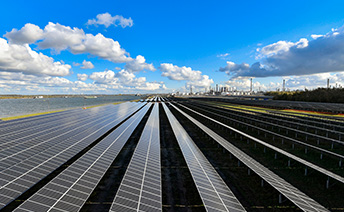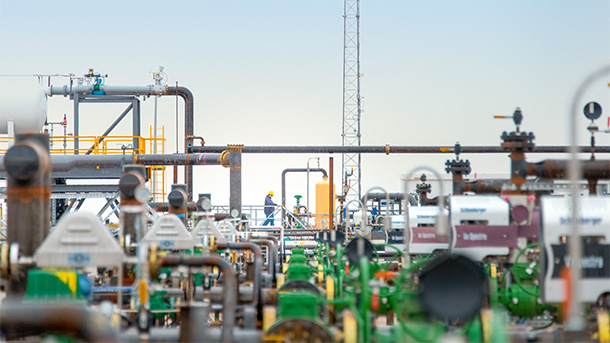Results and next steps
Summary of findings
Of the 39 industry associations we reviewed, we found:
- Alignment with 29 associations, including three we reviewed for the first time (American Clean Power Association, Australian Energy Council and Hydrogen Council);
- Some misalignment with 10 associations; and
- No material misalignment.
For a summary of our findings, see Table 4.
Addressing misalignment
We found some misalignment with the following associations:
- American Petroleum Institute (API)
- Australian Petroleum Production & Exploration Association (APPEA)
- Canadian Association of Petroleum Producers (CAPP)
- Chamber of Minerals and Energy of Western Australia (CME)
- International Gas Union (IGU)
- National Association of Manufacturers (NAM)
- Queensland Resources Council (QRC)
- Texas Oil & Gas Association (TXOGA)
- U.S. Chamber of Commerce (USCC)
- Western States Petroleum Association (WSPA)
We have considered our next steps carefully and have decided to remain in these associations at the current time, and to increase our engagement with them in areas where we have different views. We will continue to promote climate and energy transition-related policies that support the goal of the Paris Agreement and help society to achieve net-zero emissions by 2050.
We will continue to track alignment of our positions on climate and energy transition-related policy and, where we find misalignment, will continue to report on our differences. We will review the progress of these associations in 12 months’ time.
We summarise some of our key findings below.
We continue to believe that the advocacy of these associations is evolving. We welcome API’s advocacy on carbon pricing over the past year. However, we note that these associations opposed the Inflation Reduction Act of 2022. Shell supported the legislation, which has been described as the “largest climate investment in American history”.[1] The three associations opposed the legislation, mainly due to the proposed tax increases, rather than the climate and clean energy provisions. We will urge these associations to engage in sustained and constructive advocacy in support of the US target to achieve net-zero emissions by 2050.
As noted in our case study on tackling methane emissions, we found that some associations that cover upstream issues did not have positions in support of both the direct regulation of methane emissions and ending routine flaring by 2030 or sooner. This includes APPEA, CAPP and IGU, for which we found some misalignment in this review, compared with the finding of alignment in the 2021 review.
We recognise that methane policy in Australia is emerging, and none of the Australian associations we reviewed that focus on upstream issues had positions on both direct regulation of methane emissions and ending routine flaring by 2030 or sooner. We welcome APPEA’s efforts in 2022 to raise industry awareness of the need to reduce methane emissions. We also welcome its public support for the Australian government’s decision to sign the Global Methane Pledge. We will continue to work with APPEA, and other upstream associations, to urge more progressive positions on reducing methane emissions, including supporting direct regulation and ending routine flaring by 2030 or sooner.
We recognise that CAPP has advocated in support of direct regulation of methane emissions in Canada. We will urge CAPP to state support for ending routine flaring by 2030 or sooner.
We note that IGU advocates in support of reducing methane emissions. However, it does not typically advocate in support of methane regulations. We will urge IGU to support the direct regulation of methane emissions and to publicly state its support for ending routine flaring by 2030 or sooner.
In our 2021 review, we found material misalignment with QRC. Following QRC’s 2022 update of its Energy and Climate Policy, and commitment to advocate in line with this, we decided to continue our membership. We believe that QRC has been advocating more constructively on climate and energy transition issues over the past year.
We note that in late 2022, QRC launched its Keep Queensland Competitive campaign. The focus of the campaign is on the Queensland government’s decision to increase taxes on coal royalties to the highest level in the world, and the consequences for future investment in other major energy and mining projects. Given the campaign’s focus on taxes on coal royalties, and Shell’s position in support of the phase-out of unabated coal power generation by 2040, where feasible, we have decided not to participate in or contribute financially to the campaign.
We found some misalignment with TXOGA in our 2021 review of industry associations. The review found that TXOGA had not stated support for the goal of the Paris Agreement or net-zero emissions by 2050. Our latest review has found that this position has not changed. TXOGA has advised us that as a state-level organisation it is not organised or funded to routinely address such issues. It believes that support for the Paris Agreement and net-zero emissions should be managed at a federal level.
We have conducted a more detailed review of our membership of TXOGA, and decided to remain in the association. We recognise the value that TXOGA brings to us through its advocacy on carbon capture, utilisation and storage (CCUS) and hydrogen. Supportive CCUS and hydrogen regulations are crucial for our business strategy to develop industrial decarbonisation hubs in the region. In 2022, TXOGA worked with the Texas state government on CCUS regulation, resulting in TXOGA authoring a draft CCUS bill for the 2023 Texas State Legislative Session. TXOGA has also provided input into additional bills being drafted in support of hydrogen production and distribution projects. We believe that its positions are changing, and that we can have more impact within the association than outside of it.
We will keep our membership of TXOGA under review during the next 12 months. We will use this period to continue to engage TXOGA, including through our position on TXOGA’s board and our membership of its work groups on carbon management and climate policy.
We note that although WSPA recognised the California net-zero emissions by 2045 target, it opposes some of the proposed plans for how to achieve it. We support California’s 2045 target but share many of WSPA’s concerns about the feasibility of the plan to achieve it.
We also note that WSPA opposed the California Advanced Clean Cars II regulation that requires all new passenger vehicles sold in California to be zero-emissions by 2035. Again, Shell supports the target, but shares WSPA’s concerns about the feasibility of the plan to achieve it and some of the associated proposals. Shell believes there needs to be a more comprehensive clean infrastructure plan that accompanies this regulation.
In both cases, Shell and WSPA are working with policymakers to support a well-designed and feasible pathway to achieve the target, which we believe should also be sensitive to low-income and under-represented communities.
[1] https://www.ceres.org/news-center/press-releases/corporate-leaders-call-congress-promptly-pass-inflation-reduction-act










